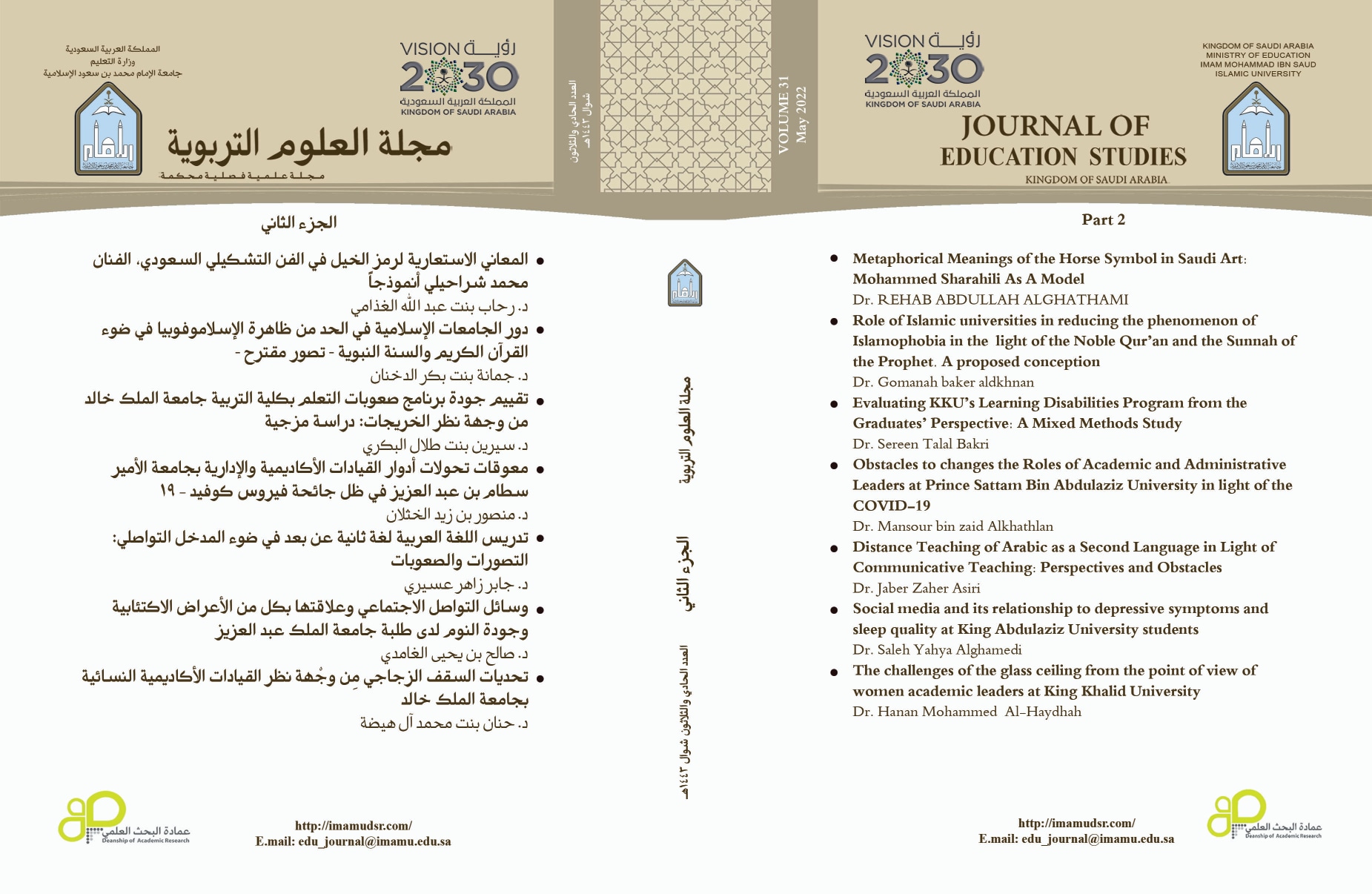Evaluating KKU’s Learning Disabilities Program from the Graduates’ Perspective: A Mixed Methods Study
Keywords:
Evaluation, Academic programs, Quality, Learning disabilities programAbstract
For the quantitative phase, a two-section scale was developed: the first section comprised three questions to gather general information and the second one comprised 9 themes, namely, academic courses, field training, graduates’ evaluation, teaching skills and classroom applications, academic guidance, curricular and extracurricular support resources, e-learning services, library services and the performance of tasks and practical applications. The study sample comprised 79 of the total study population (134), with a representation percentage of 59%. The results of the first phase showed that the graduates’ evaluation of the learning difficulties program was, as a whole, of mid-level.
As for the qualitative stage, a semi-structured group interview was used to clarify the results that appeared in the first phase. The results of this phase illustrated some interesting results, as the graduates expressed that the content of the topics is similar in some courses Also, the percentage of specialization courses is less than the required courses provided by universities and colleges, and the hours of practical application are insufficient, as well as the plan’s reliance on old references. The results also indicated that there are some reservations about teaching and assessment methods, such as teaching reliance on memorization and indoctrination, as well as their demand for more diverse assessment methods that take into account individual differences.
Based on the mentioned results, the study made several recommendations for developing special education programs in general and learning disabilities programs in particular.




